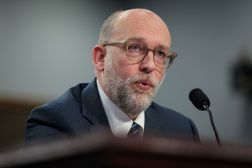Focus on early education, STEM programs in Obama’s budget
If approved, President Barack Obama’s budget would be a win for states trying to expand universal pre-kindergarten programs, with a proposed $750 million in grants to allow every 4-year-old access to high-quality programs.
Currently, the grants – about $500 million – help about 18 states develop and expand preschool programs in low-income communities. The increase in funds would help schools in more than 40 states, according to the budget, released Monday.
“Far too many families still don’t have access to high-quality preschool,” Education Secretary Arne Duncan said in a call with reporters.
He said Obama has allocated $75 billion over 10 years to provide pre-k programs to all families.
If the budget wins approval from Congress, more states would follow in the footsteps of New York, where Mayor Bill de Blasio made expanding universal pre-k a cornerstone of his administration. More than 50,000 students enrolled for slots last year.
Obama’s budget focused heavily on early education, and proposed increasing the duration of Head Start programs and providing families with a credit of up to $3,000 per kid to cover childcare expenses.
To tackle areas in science, technology, engineering and math, the budget also includes a new $125 million competitive program for STEM-focused schools.
The program would “promote the re-design of America’s high schools by integrating deeper learning and student-centered instruction,” according to a fact sheet about the budget.
The program would also try to foster more participation of women and minorities, who are traditionally underrepresented in STEM curricula.
Along with Obama’s community college proposal – which would make two-year colleges tuition-free – the budget also includes $200 million for a new American Technical Training Fund.
Modeled on community colleges in Tennessee and Texas, the proposal would help colleges across the country create partnership programs with companies like CVS and the United Parcel Service to help students train for jobs.
“Programs could be created with current community colleges, other innovative, non-traditional training providers, or entities in partnership with secondary programs,” read the release.
The funds would be overseen by both the Department of Education and Department of Labor.






